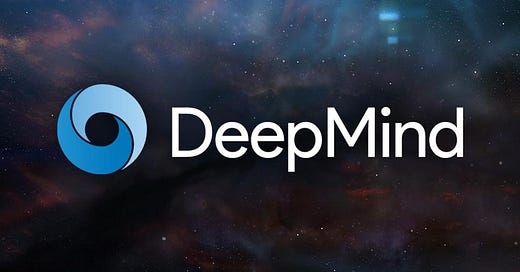DeepMind's AlphaZero AI can sort data 3x Faster
Google DeepMind’s AlphaZero AI created algorithms that, when translated into the standard programming language C++, can sort data up to three times as fast as human-generated versions
For a long time the ultimate dream of data engineers and SREs is to get 100ms response times for queries and tons of research has gone into exploring the optimization of data structures and algorithms. The ultimate goal is to get a fast experience for end-users reducing drop-outs in sessions and journey to goal states like successful orders. It hasn’t been an easy journey. Much heay lifting has been done by the cloud providers and faster services like ElasticSearch and OpenSearch.
With increasing data connection sources and complicated ETL processes it has almost become impossible to find optimal permutations for efficient data retrieval and CRUD operations. Something has to happen on the algorithmic side in addition to multiprocessor support from the cloud infrastructure.
In an article published today in Nature, DeepMind seems to have used AI to solve this perennial combinatorial optimization problem. Computer scientists have, for decades, been optimizing how computers sort data to shave off crucial milliseconds in returning search results or alphabetizing contact lists. Now DeepMind, has vastly improved sorting speeds by applying the technology behind AlphaZero — its artificial intelligence system for playing the board games chess, Go and shogi — to a game of building sorting algorithms. “This is an exciting result,” said Emma Brunskill, a computer scientist at Stanford University, California.
In a report covering the story in WSJ, the technology is explained as ‘the system uses reinforcement learning, a form of machine learning in which computers learn and develop strategies on their own, to discover faster algorithms for computer-science functions such as sorting and hashing.’.
Sorting algorithms are used to order data for things such as ranking web-search results and the back-end systems of financial institutions. Hashing algorithms convert data into a unique string of characters so users can find what they are looking for in things such as databases.
When applying AlphaDev to a C++ sorting library, the company said AlphaDev was up to 70% faster for smaller sorting tasks and 1.7% faster for large-scale sorting tasks. For hashing functions, AlphaDev discovered an algorithm that was 30% faster in the 9 to 16 bytes range. Both algorithms are available to developers in open-source libraries.
On paper, it looks groundbreaking. Is it though? Let’s read the statement again. 70% faster means that essentially data operations in organizations will reduce to an energy input of only 30% for the same operations. On the balance sheet cloud costs will go down significantly and any tech company will have that any day. Is it ready for commercialization?
Hola Dear Readers,
Thanks for reading my newsletter and I can’t tell you how happy it makes me when you take out the time for doing so. Please drop me a message to introduce yourself and let me know if you like my work (or not :)). I also do a podcast called ‘The Minhaaj Podcast’ where I invite interesting people ranging from neuroscientists, psychologists, WSJ, Forbes, CIO, and HBR writers and have joe-rogan style long-form discussions on life, work, and everything in between.
P.S. I intend to keep publishing my work without ads both on Youtube and Substack as I believe in an ad-free experience. I would be really thankful if you can support my work by buying me a coffee or donating to cover the costs of production and dissemination of the work without ads.
In trials, AI reduced the amount of underused hardware in Google’s data centers—meaning servers that weren’t being used to their full capacity—by up to 19%, the company said. Google being Google can we accept that narrative? Do we have evidence of that in terms of significantly reduced data center efficiency? Not yet but eventually that should appear in the operating costs section in upcoming earning calls.
Let us dig deep into what’s inside the architecture of this hyped algorithm. It uses an agent comprised of two core components, namely (1) a learning algorithm and (2) a representation function. The AlphaDev learning algorithm can incorporate both DRL as well as stochastic search optimization algorithms to play AssemblyGame. The primary learning algorithm in AlphaDev is an extension of AlphaZero33, a well-known DRL algorithm, in which a neural network is trained to guide a search to solve AssemblyGame. The representation function is interchangeable and captures the underlying structure of assembly programs. The primary AlphaDev representation is based on the Transformers. You can read the complete paper here. You can also find the pseudocode and algorithm for the paper here.
The report has been published a day and all major news aggregators and legacy media has picked up. It has lately become a strategy to pick up the news by verifying and having in-depth analysis but for the curious here is the coverage by VentureBeat, Arstechnica, MIT Technology Review, Wired, New Scientist, and Axios among others.
Will it become another fruitless hoax with no applied use of AI or a game-changing optimization? Only time can tell.
If you have enjoyed reading it, please feel free to share it in your network by pressing the share button below. Please subscribe to get the latest post, news, analysis, industry reports, and podcast announcements, etc.






